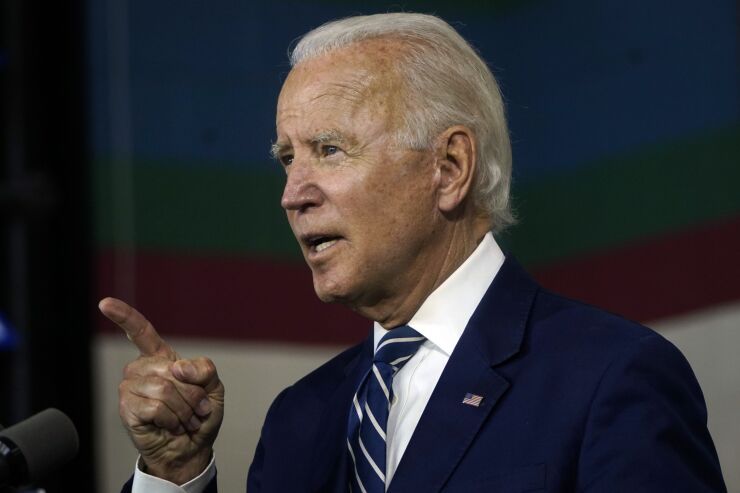President Joe Biden plans to extend a freeze on federal student-loan repayments until at least the end of September, keeping in place a pandemic measure that’s reduced costs for tens of millions of borrowers.
Biden was set to ask the Department of Education to consider the move soon after his swearing in, according to a statement from his transition team that outlined a barrage of day-one measures.
The freeze took effect last March as part of the main coronavirus relief plan passed by Congress, and it was twice extended by former President Donald Trump — most recently until the end of January.

It has saved Americans about $7 billion a month, according to calculations by the Federal Reserve Bank of New York. Interest charges have also been suspended, so that balances don’t increase during the repayment freeze, along with involuntary collections like wage garnishment for borrowers who are in default.
Biden ran on a promise of forgiving $10,000 in student debt per borrower — which would add up to about $370 billion. Some progressives have pushed him to go further. Chuck Schumer, the Democratic leader in the Senate, and Senator Elizabeth Warren had urged him to forgive $50,000 per borrower right after taking office, arguing it would deliver an immediate stimulus to the economy.
Biden has indicated he’s opposed to enacting that policy via executive order. Critics of debt forgiveness say it would channel aid to relatively well-off college graduates at a time when low-paid service workers, mostly without degrees, have been hit hardest by the pandemic.
Biden’s $1.9 trillion stimulus proposal, outlined last week, doesn’t include the loan forgiveness plan, though a Biden administration official told reporters he still supports the policy.





